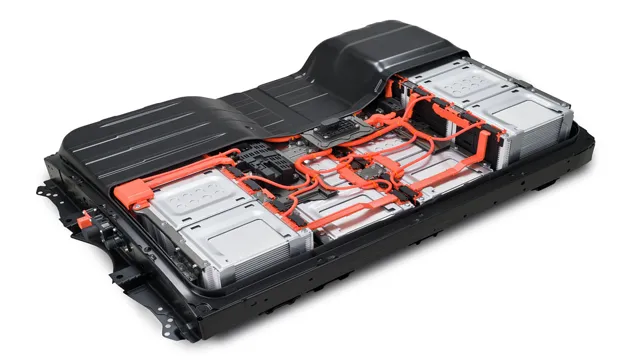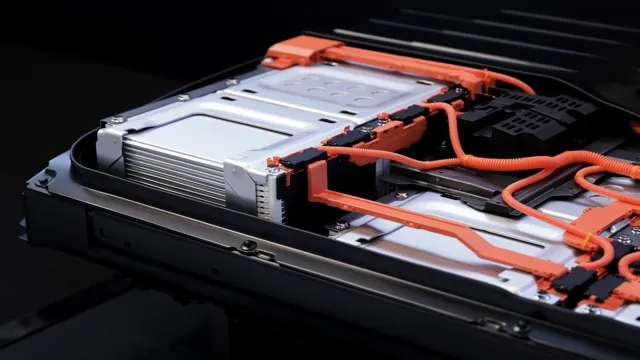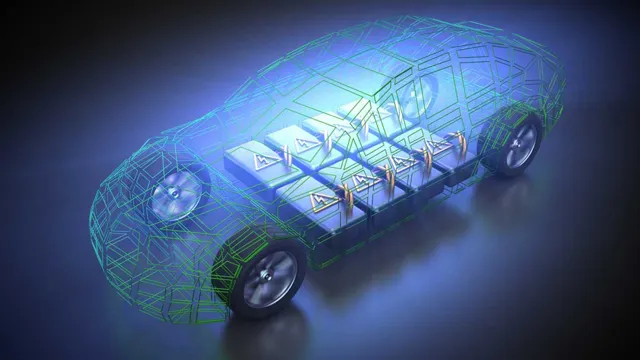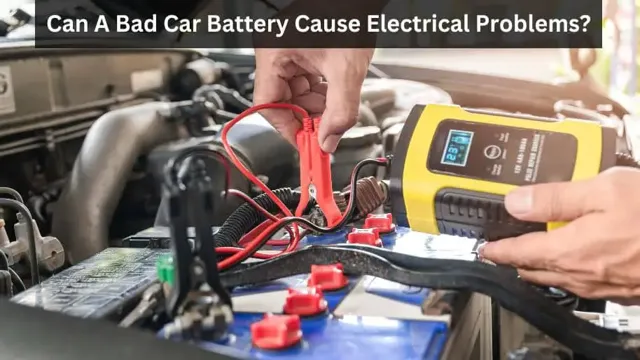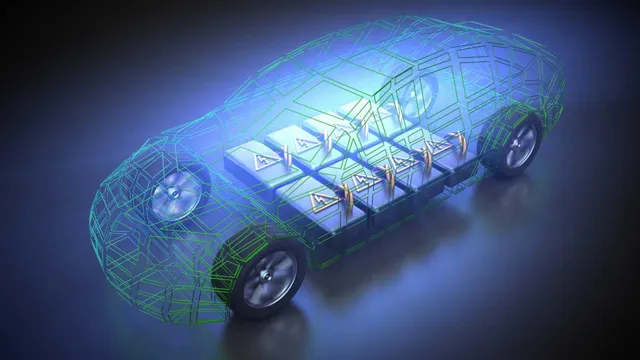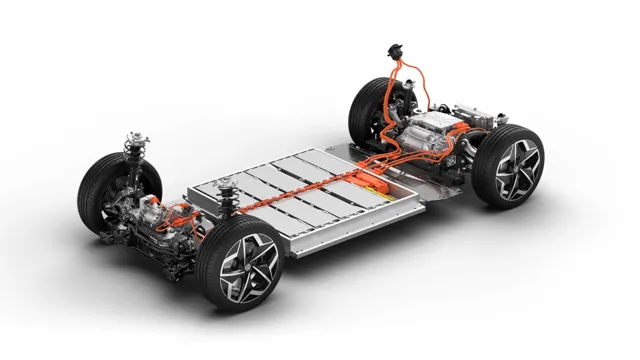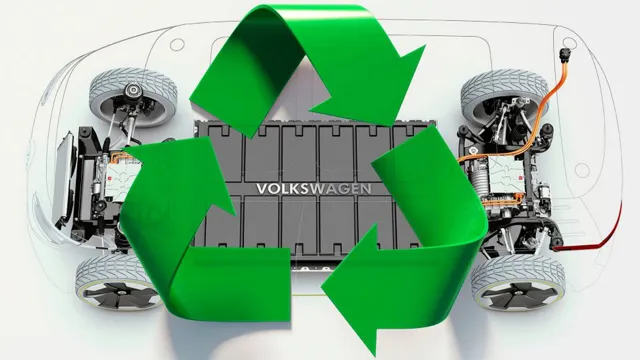Powering Up Electric Cars: Unleashing the Potential of Batteries
Electric cars have been making waves in the automotive industry for some time now, and for good reason. They run on electricity, which means they produce zero emissions and are better for the environment. But, one of the biggest challenges in the electric car industry is the battery technology.
How can we make sure that electric car batteries are long-lasting, efficient, and affordable? In this blog post, we will explore the world of electric car batteries and discuss some of the latest advancements in the field. From lithium-ion batteries to solid-state batteries, we will take a closer look at what makes a good electric car battery and what the future holds for this technology. So buckle up and get ready to learn more about the driving force behind electric cars!
Types of Batteries Used
When it comes to electric cars, there are several types of batteries used to power them. One of the most common batteries used for electric cars is the lithium-ion battery. This type of battery is known for its high energy density and its ability to hold a charge for hours.
Another popular battery used for electric cars is the nickel-metal hydride battery. It is similar to a lithium-ion battery, but it is less expensive and has a lower energy density. Some electric cars also use the lead-acid battery, which is the oldest type of battery used for automobiles.
While it is less expensive than other batteries, it is also heavier and has a shorter lifespan. Overall, the type of battery used for an electric car will depend on the car’s cost, range, and performance requirements.
Lithium-Ion Batteries
Lithium-Ion Batteries have become the go-to power source for smartphones, laptops, and electric vehicles due to their high energy density and long-lasting capabilities. There are primarily two types of Lithium-Ion Batteries used – cylindrical and prismatic. Cylindrical batteries are commonly found in laptops and power banks, while prismatic batteries are used in smartphones and EVs.
Prismatic batteries have a lower profile than cylindrical batteries, making them a better option for devices that require a slim design. Additionally, there are also pouch cells, which are used in applications that require a lot of power but have limited space. These batteries are flexible and can be made into various shapes and sizes.
Whatever type of Lithium-Ion Battery you may use, it’s important to make sure that they are properly maintained and charged for optimal performance.

Nickel-Metal Hydride Batteries
When it comes to rechargeable batteries, Nickel-Metal Hydride (NiMH) batteries are a popular choice. They are commonly used in devices such as cameras, toys, and even electric vehicles. Unlike traditional alkaline batteries, NiMH batteries can be recharged numerous times, making them a more cost-effective and environmentally-friendly option.
There are several types of NiMH batteries available, including low self-discharge, high-discharge, and standard NiMH batteries. Low self-discharge batteries hold their charge for longer periods of time, making them ideal for use in devices that are not frequently used, such as remote controls. High-discharge batteries are best suited for devices that require a lot of power, such as power tools and high-performance flashlights.
Standard NiMH batteries are suitable for everyday use in devices like toys and portable electronics. One advantage of NiMH batteries is that they don’t suffer from the “memory effect” that can occur in some other types of rechargeable batteries. However, it’s important to note that they do lose some of their charge over time, even when not in use.
Overall, NiMH batteries offer a reliable and efficient power source for a wide variety of devices.
Benefits of Electric Car Batteries
Battery used for electric cars is a hot topic in the automotive world, and for good reason. Not only do electric car batteries have a lower environmental impact than traditional gasoline-powered cars, they also offer several benefits to drivers. Electric car batteries require less maintenance than internal combustion engine cars, with no need for oil changes or tune-ups.
They also have a longer lifespan, lasting up to 10 years or more. Additionally, electric car batteries have the potential for quick charging, allowing for shorter stops on long road trips. Finally, electric car batteries offer significant financial savings over the lifetime of the vehicle, with lower fuel costs and potential tax incentives.
Overall, the battery used for electric cars is a game-changer, and as technology continues to improve, it’s exciting to imagine the future possibilities.
Lower Emissions
Lower Emissions Electric car batteries have become increasingly popular in recent years, and for good reason. One of the main benefits of these batteries is that they can significantly lower emissions. Unlike traditional cars that run on gasoline, electric cars run on electricity, which produces zero emissions.
This means that by switching to an electric car, not only can you reduce your carbon footprint, but you can also help to improve the air quality in your community. Additionally, some states and local governments offer incentives for electric car owners, such as access to carpool lanes or reduced tolls. These benefits not only save you money but also encourage more people to switch to electric cars, leading to a cleaner and healthier environment for all.
So if you’re looking for a way to make a positive impact on the environment, switching to an electric car battery may be a great option for you.
Higher Efficiency
One of the many benefits of electric car batteries is their higher efficiency compared to traditional gasoline engines. Electric car batteries can convert up to 80% of the energy stored in them to power the vehicle, while internal combustion engines can only convert about 20% of the energy from gasoline to power. This means that electric cars can travel much farther on a single charge than traditional cars can on a tank of gas.
Additionally, electric cars don’t have the same energy losses that traditional cars have, such as engine idling and heat dissipation. All of this adds up to greater efficiency and lower operating costs for electric cars. So, if you’re looking for a vehicle that’s kinder to the environment, more cost-effective, and has more range than a traditional gasoline car, an electric car battery may be the way to go!
Lower Maintenance
One of the most significant benefits of electric car batteries is their lower maintenance requirements. Unlike traditional gasoline-powered cars, electric vehicles have fewer moving parts and rely less on fluids like oil and coolant. This means that electric car owners will spend significantly less on routine maintenance expenses such as oil changes and brake pad replacements.
In fact, according to a recent study, electric car owners could save up to 50% on maintenance costs over the life of their vehicle compared to gasoline car owners. Additionally, electric car batteries typically come with longer warranties than traditional car batteries, further reducing the need for routine maintenance and repair expenses. This not only saves car owners money but also reduces the environmental impact associated with the production and disposal of traditional car fluids and materials.
Overall, lower maintenance requirements are a significant advantage of electric car batteries that contribute to making them a smarter, more sustainable choice for the future.
Drawbacks of Electric Car Batteries
The battery used for electric cars is undoubtedly innovative, but it also has some potential downsides. One of the main drawbacks is that the lithium-ion batteries used in electric cars may have a limited lifespan, which can lead to expensive replacements. Additionally, extreme temperature fluctuations can cause the battery to degrade more quickly.
The overall cost of battery replacement can significantly outweigh the benefits of owning an electric car. Furthermore, the production of the batteries uses rare minerals that are not easily recyclable, leading to environmental concerns. Despite these potential issues, the battery used for electric cars is continuously improving and becoming more efficient through advancements in technology.
As more companies invest in the development of electric car batteries, it is hoped that these problems will eventually be solved, making electric cars more accessible and sustainable for all.
High Cost
When considering purchasing an electric car, one of the biggest drawbacks is the high cost of the car’s battery. While electric vehicles may offer a lower cost of ownership over time due to savings on fuel and maintenance, the initial investment can be a barrier for many consumers. The high cost of electric car batteries means that the average price of an electric vehicle is still significantly higher than that of a traditional, gas-powered car.
This can be a difficult trade-off for consumers who want to transition to more sustainable transportation options but are deterred by the upfront cost. However, it is worth noting that battery technology is rapidly improving, and prices are expected to continue to decrease in the coming years. So while the high cost of electric car batteries may currently be a drawback, it is important to consider the long-term benefits and potential cost savings when making a purchasing decision.
Limited Range
It’s true that electric cars are becoming more popular due to their positive impact on the environment, but one of the biggest drawbacks is the limited range of their batteries. Unlike gasoline-powered cars, which can easily travel long distances, electric cars have a limited charging capacity and can only travel a certain number of miles before needing to recharge. This can be inconvenient for those who need to travel long distances or don’t have access to charging stations.
Additionally, the charging process takes much longer than refueling a gas-powered car, which can be frustrating for those in a hurry. Nonetheless, electric car batteries have come a long way in recent years, and advancements in technology are making them more efficient and long-lasting. With further improvements, electric cars could become a more viable option for drivers in the future.
Future of Electric Car Batteries
The future of electric car batteries looks bright, as manufacturers continue to work on developing improved versions that are more efficient and have a longer lifespan. The battery used for electric cars is a vital component, as it stores the energy required to power the vehicle. Currently, most electric cars use lithium-ion batteries, which are known for their high energy density and relatively low cost.
However, researchers are exploring new materials and technologies that could revolutionize the industry by making batteries even more efficient and affordable. One promising option is solid-state batteries, which use a solid electrolyte instead of a liquid one, making them safer and more durable. Additionally, advancements in artificial intelligence (AI) and machine learning are creating new opportunities for analyzing battery data and optimizing performance.
With all these exciting developments in the works, the future of electric cars looks incredibly promising. As the demand for electric vehicles continues to increase, we can expect to see revolutionary changes in the battery technology that powers them.
Conclusion
In conclusion, the battery is the power source that keeps the electric car running smoothly and efficiently. Think of it as the heart of the vehicle, pumping energy to the motor and driving you forward. It’s the backbone of the eco-friendly revolution and a true testament to the power of innovation.
So, whether you’re a die-hard electric car enthusiast or a skeptic yet to be convinced, remember this: your battery is like your morning cup of coffee – without it, you’ll be going nowhere fast.”
FAQs
What type of battery is typically used in electric cars?
Lithium-ion batteries are commonly used in electric cars due to their high energy density and relatively low weight.
How long does an electric car battery typically last before needing to be replaced?
The lifespan of an electric car battery can vary, but most manufacturers offer warranties of around 8 to 10 years or 100,000 to 150,000 miles.
Is it possible to charge an electric car battery using a standard household outlet?
Yes, it is possible to charge an electric car battery using a standard household outlet, but it will take significantly longer than using a specialized charging station.
How does the use of an electric car battery compare to the environmental impact of traditional gasoline-powered cars?
Electric cars produce zero emissions during operation, but the production and disposal of their batteries can have environmental impacts. However, overall, electric cars are still considered to be more eco-friendly than traditional gasoline-powered cars.
